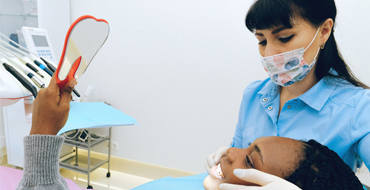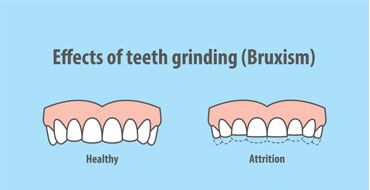Do you have frequent headaches, ear pain, or stiff, tight jaws? Does it hurt to chew, or do you hear clicking or popping in your jaw? You may have temporomandibular joint dysfunction (TMD).
The temporomandibular joint (TMJ) connects your skull to your jawbone, located in front of the ears, and controls all jaw functions. When the joint is damaged or does not work the way it should, it is called temporomandibular joint dysfunction.
The TMJ/TMD dentists at Gentle Dental can evaluate your symptoms and determine if you have temporomandibular joint dysfunction and help with a treatment plan to get your life back to being pain-free. Evening and Saturday appointments available. Call to Schedule an appointment.


